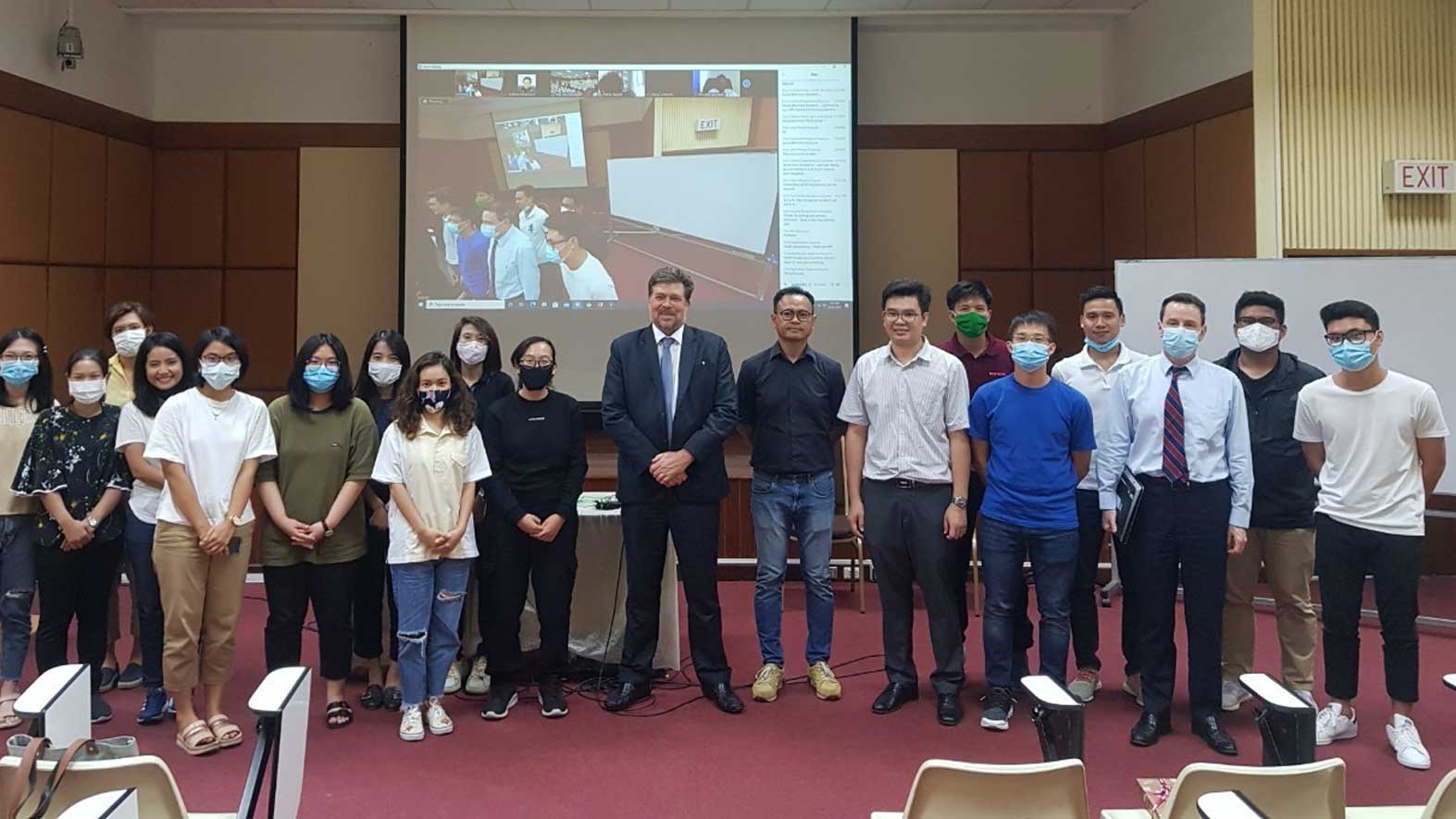The Asian Institute of Technology (AIT), supported by the Government of Japan, is about to start a one year university course on ‘Marine Plastic Abatement’, leading to a Master’s Degree. This is an excellent contribution, and it functions as an example on the multifaceted actions that need to be taken, in order to turn the global plastic pollution into a smart and comprehensive system of resource utilization. UNESCO has established a strong partnership consortium consisting of UNESCO, UN Habitat, UNESCAP, UNEP, IUCN, SEAMEO, the Thai National Science Museum (NSM), and AIT. AIT invited UNESCO to talk about marine plastic abatement to their new students, and discuss what can and should be done, and about the multiple difficulties concerning this subject. Dr. Benno Böer, Programme Specialists for the Natural Sciences at UNESCO Bangkok, discussed these issues with 39 students, and their professors during a two hour session. The seminar consisted of a power point presentation, an audio on marine mammals and ghost-nets, and a longer discussion. Many more students as well as members of the general public, in an attempt to support the ‘Open Sciences’, bringing people closer to the sciences and science-policy, joined the seminar online. He explained that UNESCO hosts the UNESCO World Network of Biosphere Reserves, which is a network consisting of 701 sites globally, and 152 located in Asia Pacific, functioning as places for nature conservation, and human living in harmony with nature, places where plastic pollution issues should be scientifically analysed, and where old and new ideas should be tested.
Audio on marine mammals and ghost-nets
It was also discussed that plastic-pollution cannot just be a seen as a marine issue, but a cross-cutting-issue touching multiple ecosystems, since plastic pollution traverses urban ecosystems, terrestrial and coastal, as well as riparian and aquatic systems, beaches and the oceans. It was highlighted that there is no easy fix to solve this old problem, and that a concerted action is required to seriously improve the situation. Action needs to be based on science-education, science-engineering, science-innovation & technology, science-based environmental policies, education-based awareness and behaviour, as well as common sense.

Event announcement
The students were mainly from Thailand, Myanmar, Vietnam, Indonesia, and China. One student pointed out the lack of connectivity of urban people with natural ecosystems. It was suggested to foster the coalition with people and nature, including via field-excursions. UNESCO and AIT are now planning a field excursion for young professionals and students to take place in 2021, visiting the Ranong UNESCO Biosphere Reserve and the Satun UNESCO Global Geopark in Thailand, to observe the connectivity of plastic pollution and coastal ecosystems, in order to enhance the knowledge and skills of young people, including with science-education elements. The same suggestion was previously discussed between staff of UNESCO, FAO & IUCN. Due to Covid-19, international excursions will be difficult or impossible for some time, however, for the time being, it is possible to travel to the many beautiful UNESCO sites in Thailand, and we should make use of it.


